Executive/Senior Management Level Training:
The PSC Management Forum:
This unique approach to management training is designed for up to 10 managers and can be conducted live onsite or live online.
Day 1: PSC schedules 30- to 45-minute appointments with each participating manager, via teleconference or video conference, to discuss his/her most pressing leadership issues.
Day 2: During the next two weeks, PSC designs a hands-on seminar in which the managers will work together to resolve the issues shared in their interviews. Again, this training day can be conducted onsite or online. It’s an excellent trade-off—one day plus 45 minutes of your managers’ time in exchange for what may just result in a life-changing experience for them and for your organization.
OPM Core Competencies Executive Leadership Seminars:
Executive leaders face crucial challenges in the workplace because they are required to establish the vision, persuade a team of employees to embrace that vision, and motivate them to achieve excellence until the vision is realized. Leaders must also be adept in handling interpersonal difficulties, coaching and counseling their team members, discussing and managing their employees’ performance, and taking corrective action when employees do not conform to organizational requirements or engage in acts of misconduct. Our Executive Leadership seminars help participants discover how to lead their employees to peak performance levels by addressing the Core Leadership Competency Skills as defined by the Office of Personnel Management. These competencies include Quality Service, Interpersonal Skills, Leveraging Diversity, Integrity and Honesty, and Oral and Written Communication.
The Executive Managers’ Retreat
A two-day escape, to great overnight accommodations, dedicated to analyzing the four big issues that executives face in the workplace: leadership, planning, motivation, and vision. Participants gather for an introductory dinner, and right away, the facilitator begins to coordinate the flow of activities, giving participants the opportunity to engage in stimulating problem-solving activities using conference, small group discussions, individual counseling, and weather permitting, even the great outdoors. The exercises and discussions are lively and stimulating and give the managers ample opportunity for experiential learning and information exchange.

Supervisory and Staff Level Training:
Progressive Success offers the following off-the-shelf seminars which can be fully tailored to your organization’s needs:
Appraising Performance
Participants learn: Negotiating expectations; developing performance elements; developing performance standards; developing work plans; and conducting performance interviews.
Briefing Techniques, Advanced
Participants learn: Using the exclusive “60 Words In 6 Minutes” format, analyzing executive audiences; identifying the types of executive audiences; persuading decisions; delivering presentations; and answering executives’ questions.
Briefing Techniques, Basic
Participants learn: 14 problems speakers encounter; 5 steps to follow when presenting; 10 steps to follow when preparing; 148 tips to overcome fear of speaking in public; 7 ways to tailor a presentation; 13 ways to use visual and voice; and 10 delivery techniques that ensure success.
Change Management
Participants Learn: Techniques to successfully implement organizational change; The full spectrum of change dynamics—why people resist, what can be done to implement change, and how to keep people happy so that they don’t resist.
Communication Skills
Participants learn: The 4 major barriers to communication, 3 models that clearly define communication; 6 communication behavior factors, and 10 strategies to overcome the communication barriers and become an effective communicator.
Conflict Resolution
Participants learn: Why conflict occurs and the warning signs that conflict is escalating; techniques for resolving conflict situations using positive approaches; 3 characteristic behaviors that relate to conflict; and how to confront others without increasing the tension.
Coaching and Counseling Skills
Participants learn: How to use a logical counseling process; how to create a positive counseling atmosphere, the critical aspects of counseling, how to define counseling; to recognize the 12 major problems counselors encounter; to use 7 counseling techniques to create positive results.
Creative Thinking
Participants learn: To use the “Uses For…” creativity technique, to use the “Improvements To…” technique, to use the Brainstorming Technique, 17 ways to jump-start organizational creativity, the “What Would You Do If” Technique, to use Attribute Analysis; and use the Checklist Technique.
Customer Service
Participants learn: to build and maintain customer satisfaction, 6 techniques for using communication as a customer relations tool, how to gain the customer’s goodwill and trust, to use the telephone to maintain good relations, how to reduce customer anger.
Difficult People, Dealing With
Participants learn: The types of difficult personalities, how to take a positive approach to discipline problems, to use techniques for dealing with specific types of difficult people, to use techniques for dealing with a difficult boss, and to analyze and solve actual workplace problems.
Discipline, How To
Participants learn: How to establish work objectives and standards, how to develop employee skills, how to counsel problem employees, how to administer discipline, to understand Federal Regulations regarding disciplinary actions, and how to identify problem employees.
Diversity, Valuing Cultural
Participants learn: Why valuing diversity is important, to use the fundamental differences in people in a positive way, the dangers of stereotyping, what diversity brings to the workplace, how to respond to inappropriate comments, diversity’s role in communication and leadership.
Emotional Intelligence
Participants learn: To master the four tenets of emotional intelligence: Emotional Identification, Emotional Interpretation and Understanding, Emotional Facilitation of Thought, and Emotional Management in order to gain control of their own emotions as well as the emotions of others in the workplace through role plays, discussions, and practical exercises.
Ethics In Leadership
Participants learn: The definition of business ethics, the ethical problems and challenges managers encounter, 10 benefits of managing ethical behaviors, 8 guidelines for managing ethics in the workplace, and 6 key roles and responsibilities in ethics management.
Facilitation Seminar
The facilitator will: Assist in avoiding the pitfalls of common meetings; maintain a climate of openness; minimize differences; encourage opposing views; keep the discussions on track and realistic; maintain focus on the tasks at hand; and lead the team to the desired outcomes.
Interviewing Techniques
Participants learn: the factors that create an effective interview system; techniques for preparing a successful interview; techniques for asking legal questions and avoiding illegal questions; to overcome interviewing problems; and the benefits of effective interviewing techniques. How interviews are structured; how to prepare for a successful interview; how to respond to questions; how to react and respond to tricky or stress questions; how to turn weaknesses into strengths; and how to dress for the interview.
Listening and Memory Development
Participants learn: to overcome the four major barriers to listening; to use 7 listening strategies, to remember names and faces, facts, procedures, and other items of importance; to listen more effectively in groups or one-on-one; and to organize thoughts for more efficient memory.
Meeting Leadership
Participants learn how to: Develop good meeting objectives; establish the audience, time, and place; develop an agenda; facilitate participation, manage discussions; control difficult people; make closing remarks, create the minutes; and follow up.
Negotiating With Confidence
Participants learn: the role of communication in negotiation; the problems one encounters; the techniques involved in the negotiation process; effective data collection techniques; how to ask objective questions; and how to develop win-win options.
Problem Solving and Decision Making
Participants learn: the steps involved in problem solving and decision making; to use a problem-solving model and apply problem-solving strategies; to give good directions that implement decisions.
Supervision Workshop
Participants learn how to: exercise leadership; establish a vision to the future; make sound decisions and give good directions; communicate for maximum effectiveness; motivate employees; empower employees; exercise controls; and build teams into cohesive units.
Team Building
Participants learn: team building problems and challenges; 13 team building techniques including how to: be a good team member; be a good team leader; negotiate expectations; communicate; use ground rules; establish trust; establish vision; plan work; and resolve team conflict.
Team Leader Development
Participants learn: the advantages and disadvantages of matrix management; how to: lead conferences; establish ground rules; build consensus; counsel team members; develop plans; communicate; and coordinate information related to team performance.
Time Management
Participants learn: to recognize time wasters; to establish and use time savers; to develop and maintain a time management plan; to apply techniques to job responsibilities; to use the telephone to save time; to deal with unscheduled visitors; and overcome procrastination.
Other Topics
Equal Employment Opportunity
Participants learn: The 7 EEO problems that managers encounter, 9 techniques that keep EEO complaints to a minimum, 9 techniques to solve EEO problems, to treat all employees fair regardless of race, color, creed, national origin, or sex.
Facilitator/Instructor Training
Participants learn: How to develop training objectives; how to master the Lecture, Conference, Demonstration, and Practical Exercise; how to prepare classroom; how to establish and maintain proper teaching environment; and how to develop and use lesson plans.
Management Analysis Techniques
Participants learn: the role of the management analyst; the phases of a management analysis project; techniques for designing a research project or study; methods for defining and analyzing problems; techniques for completed staff work; and techniques for selling ideas to management.
Management Consulting
Participants learn: to plan a management consulting project; to design data collection tools and collect the data; to analyze data; and generate findings; conclusions and recommendations; and to package the results and present feedback to management.
Management Development
Participants learn: how to communicate; establish vision; coach employees; lead employees; plan work; empower employees; make decisions; exercise control; and build teams all at the executive level.
Violence in the Workplace, Preventing
Participants learn: the background and definition of battering and other violent behaviors and acts of aggression, who are victims and perpetrators of domestic and workplace violence, why men batter women and why women stay; and techniques for developing a safety plan.
